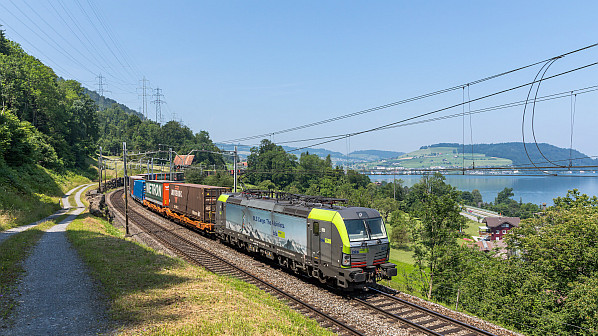THE European Rail Freight Association (ERFA) says it is essential that rail freight can operate efficiently over the next eight to 10 years in order to reach 2030 growth targets.
This follows the European Commission’s (EC) proposal for a revision to the TEN-T guidelines, announced in December, which is expected to have a direct influence on rail freight’s ability to meet the 2030 and 2050 growth targets.
ERFA says it supports many of the provisions within the proposal, but claims the text is unfinished and that further clarification and elaboration is needed in key areas.
For example, ERFA says provisions must be introduced to ensure that rail freight can continue to operate in the best possible way in light of an anticipated high intensity of planned construction work. ERFA says this will require a strong level of coordination along the entirety of the 10 TEN-T corridors, with a particular focus on international planning, strong communication to rail freight operators, professional execution and good infrastructure management in terms of disruptions.
ERFA also claims that it is doubtful there will be any operational gain from ETCS deployment until 2030 at the very earliest. Because of this it says that ETCS deployment, and subsequent financing, must also be included as a priority for infrastructure development. In the short-term it says it is essential that operators are not confronted with specific national obligations which require additional software changes that could increase costs and restrict the use of locomotives.
“It is essential for rail freight that we finally move away from national development plans to a coordinated and international approach whilst keeping in mind the capacity needs of the sector,” says ERFA secretary general, Mr Conor Feighan. “This also includes the necessary development and implementation of a slot allocation system to secure rail freight paths.”

